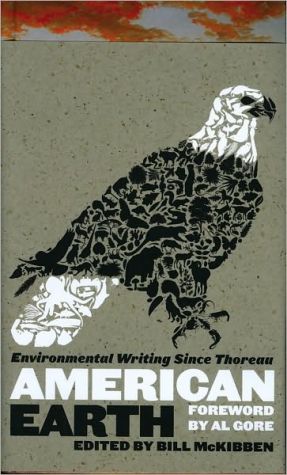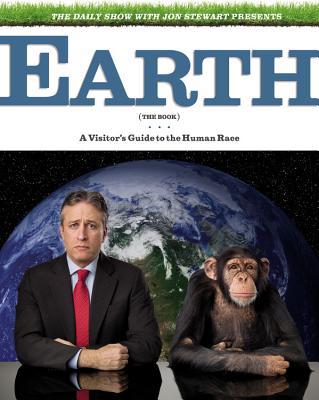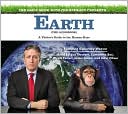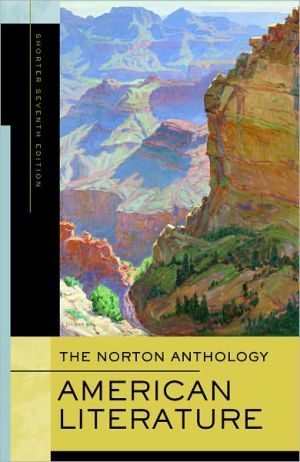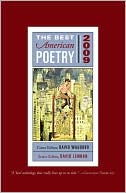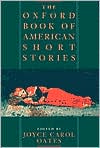American Earth: Environmental Writing Since Thoreau
As America and the world grapple with the consequences of global environmental change, writer and activist Bill McKibben offers this unprecedented, provocative, and timely anthology, gathering the best and most significant American environmental writing from the last two centuries.\ Classics of the environmental imagination-the essays of Henry David Thoreau, John Muir, and John Burroughs; Aldo Leopold's A Sand County Almanac; Rachel Carson's Silent Spring'are set against the inspiring story...
Search in google:
As America and the world grapple with the consequences of global environmental change, writer and activist Bill McKibben offers this unprecedented, provocative, and timely anthology, gathering the best and most significant American environmental writing from the last two centuries. Classics of the environmental imagination—the essays of Henry David Thoreau, John Muir, and John Burroughs; Aldo Leopold's A Sand County Almanac; Rachel Carson's Silent Spring—are set against the inspiring story of an emerging activist movement, as revealed by newly uncovered reports of pioneering campaigns for conservation, passages from landmark legal opinions and legislation, and searing protest speeches. Here are some of America's greatest and most impassioned writers, taking a turn toward nature and recognizing the fragility of our situation on earth and the urgency of the search for a sustainable way of life. Thought-provoking essays on overpopulation, consumerism, energy policy, and the nature of “nature” join ecologists' memoirs and intimate sketches of the habitats of endangered species. The anthology includes a detailed chronology of the environmental movement and American environmental history, as well as an 80-page color portfolio of illustrations.The Washington Post - Gregory McNameeWhat truly sets the anthology apart is not the mix of the obscure and the familiar but McKibben's habit of enlisting voices whom we are not accustomed to thinking of as environmentalists or ecologists. I'd be willing to bet that this is the first work of nature writing to feature the drawings of R. Crumb, of Zap Comix fame, alongside lyrics by Marvin Gaye…Well selected, full of surprises and informed by McKibben's thoughtful commentary, American Earth is the first anthology of American nature writing to come close to the standard Thomas Lyon set two decades ago with "This Incomperable Lande": A Book of American Nature Writing. Ours is an incomparable land indeed, and McKibben's collection is a welcome reminder.
AMERICAN EARTH Environmental Writing Since Thoreau \ By Bill McKibben \ THE LIBRARY OF AMERICA Copyright © 2008 Literary Classics of the United States, New York, NY.\ All right reserved.\ ISBN: 978-1-59853-020-9 \ \ \ \ Chapter One HENRY DAVID THOREAU \ Henry David Thoreau (1817-1862) was born, grew up, lived out his life, and died in Concord, Massachusetts. He studied at Harvard from 1833 to 1837, then signed on as a teacher at Concord Academy but was dismissed for refusing to whip students. He and his brother John opened an elementary school in 1838, where, according to some authorities, they invented the idea of the field trip. John became sick in 1841 and the brothers closed the school; Henry went to live with Ralph Waldo Emerson, beginning a long friendship with him and with the other members of the Transcendental Club, among them Bronson Alcott and Margaret Fuller. The other transcendentalists experimented with communes like Brook Farm, but Thoreau was more solitary, and the most important years in his life began in 1845 when he took up residence in a small cabin he'd built on the shore of Walden Pond a short walk from town. He spent two years, two months, and two days there, experimenting with simplifying his life. Thorean's isolation at Walden wasn't absolute or deliberately ascetic-he often returned to town to see friends and eat meals, had a steady stream of visitors (often too steady for his taste), and at one point engaged in a political protest, spending a night in Concord jail for his refusal to pay his poll tax. But it was notably productive: he returned to town with the draft of one book (A Week on the Concord and Merrimack Rivers) and the notes that he would spend the next six years turning into Walden (1854), perhaps the most remarkable book in the American canon. As dense as scripture, crowded with aphorism, Walden is full of enough ideas for a score of ordinary books. But it has lived as long and as fully as any other writing of its vintage and inspired all the best kinds of people: both Mahatma Gandhi and Martin Luther King Jr. claimed him as a major influence. Thoreau suffered from tuberculosis contracted during his college years: his condition worsened beginning in 1859, and he spent his last years revising his accounts of the Maine woods and other works. As he neared death his aunt Louisa asked him if he had made his peace with God. "I did not know we had ever quarreled," he said. He died at the age of 44.\ Picking a few fragments from his writings is an impossible task: an anthology of American environmental writing might well be one-third Thoreau. Here are a few entries from his copious journals, and then the description from Walden of the building of the famous cabin. "Huckleberries," a late essay or lecture-text, shows the modern nature essay being born, with a small root giving way to a luxuriant growth of thought and speculation.\ from Journals\ Oct. 24th 1837.\ The Mould our Deeds Leave.\ Every part of nature teaches that the passing away of one life is the making room for another. The oak dies down to the ground, leaving within its rind a rich virgin mould, which will impart a vigorous life to an infant forest - - The pine leaves a sandy and sterile soil-the harder woods a strong and fruitful mould. - -\ So this constant abrasion and decay makes the soil of my future growth. As I live now so shall I reap. If I grow pines and birches, my virgin mould will not sustain the oak, but pines and birches, or, perchance, weeds and brambles, will constitute my second growth. - -\ March 6th 1838\ - - How can a man sit down and quietly pare his nails, while the earth goes gyrating ahead amid such a din of sphere music, whirling him along about her axis some twenty four thousand miles between sun and sun? but mainly in a circle some two millions of miles actual progress. And then such a hurly-burly on the surface-wind always blowing-now a zephyr, now a hurricane-tides never idle, ever fluctuating, no rest for Niagara, but perpetual ran-tan on those limestone rocks-and then that summer simmering which our ears are used to-which would otherwise be christened confusion worse confounded, but is now ironically called "silence audible"-and above all the incessant tinkering named hum of industry-the hurrying to and fro and confused jabbering of men-Can man do less than get up and shake himself?\ April 24th 1838.\ Steam ships\ -Men have been contriving new means and modes of motion-Steam ships have been westering during these late days and nights on the Atlantic waves-the fuglers of a new evolution to this generation - - Meanwhile plants spring silently by the brook sides-and the grim woods wave indifferent-the earth emits no howl pot on fire simmers and seethes and men go about their business. - -\ Saturday March 19th 1842\ When I walk in the fields of Concord and meditate on the destiny of this prosperous slip of the Saxon family-the unexhausted energies of this new country-I forget that this which is now Concord was once Musketaquid and that the American race has had its destiny also. Everywhere in the fields-in the corn and grain land-the earth is strewn with the relics of a race which has vanished as completely as if trodden in with the earth.\ I find it good to remember the eternity behind me as well as the eternity before. Where ever I go I tread in the tracks of the Indian-I pick up the bolt which he has but just dropped at my feet. And if I consider destiny I am on his trail. I scatter his hearth stones with my feet, and pick out of the embers of his fire the simple but enduring implements of the wigwam and the chace-In planting my corn in the same furrow which yielded its increase to his support so long-I displace some memorial of him.\ I have been walking this afternoon over a pleasant field planted with winter rye-near the house. Where this strange people once had their dwelling place. Another species of mortal men but little less wild to me than the musquash they hunted-Strange spirits-daemons-whose eyes could never meet mine. With another nature-and another fate than mine- The crows flew over the edge of the woods, and wheeling over my head seemed to rebuke-as dark winged spirits more akin to the Indian than I. Perhaps only the present disguise of the Indian- If the new has a meaning so has the old.\ Nature has her russet hues as well as green-Indeed our eye splits on every object, and we can as well take one path as the other-If I consider its history it is old-if its destiny it is new-I may see a part of an object or the whole-I will not be imposed on and think nature is old, because the season is advanced I will study the botany of the mosses and fungi on the decayed-and remember that decayed wood is not old, but has just begun to be what it is. I need not think of the pine almond or the acorn and sapling when I meet the fallen pine or oak-more than of the generations of pines and oaks which have fed the young tree.\ The new blade of the corn-the third leaf of the melon-these are not green but gray with time, but sere in respect of time.\ September 12, 1851\ 2 PM To the Three Friends' Hill beyond Flints Pond-via RR. RWEs Wood Path S side Walden-Geo Heywood's Cleared Lot & Smith's orchards-return via E of Flints' P via Goose P & my old home to RR-\ I go to Flints P. for the sake of the Mt view from the hill beyond looking over Concord. I have thought it the best especially in the winter which I can get in this neighborhood. It is worth the while to see the Mts in the horizon once a day. I have thus seen some earth which corresponds to my least earthly & trivial-to my most heaven-ward looking thoughts-The earth seen through an azure an etherial veil. They are the natural temples elevated brows of the earth-looking at which the thoughts of the beholder are naturally elevated and etherialized. I wish to see the earth through the medium of much air or heaven-for there is no paint like the air. Mts thus seen are worthy of worship. I go to Flints' Pond also to see a rippling lake & a reedy-island in its midst-Reed Island.\ A man should feed his senses with the best that the land affords\ At the entrance to the Deep Cut I heard the telegraph wire vibrating like an AÆolian Harp. It reminded me suddenly-reservedly with a beautiful paucity of communication-even silently, such was its effect on my thoughts-It reminded me, I say, with a certain pathetic moderation-of what finer & deeper stirrings I was susceptible-which grandly set all argument & dispute aside- -a triumphant though transient exhibition of the truth. It told me by the faintest imaginable strain-it told me by the finest strain that a human ear can hear-yet conclusively & past all refutation-that there were higher infinitely higher plains of life-which it behoved me never to forget. As I was entering the Deep Cut the wind which was conveying a message to me from heaven dropt it on the wire of the telegraph which it vibrated as it past. I instantly sat down on a stone at the foot of the telegraph pole-& attended to the communication. It merely said "Bear in mind, Child & never for an instant forget-that there are higher plains infinitely higher plains of life than this thou art now travelling on. Know that the goal is distant & is upward and is worthy all your life's efforts to attain to." And then it ceased and though I sat some minutes longer I heard nothing more.\ There is every variety & degree of inspiration from mere fullness of life to the most rapt mood. A human soul is played on even as this wire-which now vibrates slowly & gently so that the passer can hardly hear it & anon the sound swells & vibrates with such intensity as if it would rend the wire-as far as the elasticity & tension of the wire permits-and now it dies away and is silent-& though the breeze continues to sweep over it, no strain comes from it-& the traveller hearkens in vain. It is no small gain to have this wire stretched through Concord though there may be no Office here. Thus I make my own use of the telegraph-without consulting the Directors-like the sparrows which I perceive use it extensively for a perch.\ Shall I not go to this office to hear if there is any communication for me-as steadily as to the Post office in the village?\ Tuesday Dec 30th\ Mem. Go to the Deep Cut. The flies now crawl forth from the crevices all covered with dust, dreaming of summer-without life or energy enough to clean their wings\ This afternoon being on fair Haven Hill I heard the sound of a saw-and soon after from the cliff saw two men sawing down a noble pine beneath about 40 rods off. I resolved to watch it till it fell-the last of a dozen or more which were left when the forest was cut and for 15 years have waved in solitary majesty over the sproutland. I saw them like beavers or insects gnawing at the trunk of this noble tree, the diminutive mannikins with their crosscut saw which could scarcely span it. It towered up a hundred feet as I afterward found by measurement-one of the tallest probably now in the township & straight as an arrow, but slanting a little toward the hill side.-its top seen against the frozen river & the hills of Conantum. I watch closely to see when it begins to move. Now the sawers stop-and with an axe open it a little on the side toward which it leans that it may break the faster. And now their saw goes again-Now surely it is going-it is inclined one quarter of the quadrant, and breathless I expect its crashing fall-But no I was mistaken it has not moved an inch, it stands at the same angle as at first. It is 15 minutes yet to its fall. Still its branches wave in the wind as if it were destined to stand for a century, and the wind soughs through its needles as of yore; it is still a forest tree-the most majestic tree that waves over Musketaquid.-The silvery sheen of the sunlight is reflected from its needles-it still affords an inaccessible crotch for the squirrel's nest not a lichen has forsaken its mastlike stem- -its raking mast-the hill is the hull. Now's the moment the mannikins at its base are fleeing from their crime-they have dropped the guilty saw & axe. How slowly & majestically it starts-as if it were only swayed by a summer breeze and would return without a sigh to its location in the air-& now it fans the hill side with its fall and it lies down to its bed in the valley from which it is never to rise, as softly as a feather, folding its green mantle about it like a warrior-as if tired of standing it embraced the earth with silent joy.-returning its elements to the dust again-but hark! there you only saw-but did not hear-There now comes up a deafening crash to these rocks-advertising you that even trees do not die without a groan. It rushes to embrace the earth, & mingle its elements with the dust. And now all is still once more & forever both to eye & ear.\ I went down and measured it. It was about 4 feet in diameter where it was sawed-about 100 feet long. Before I had reached it-the axe-men had already half divested it of its branches. Its gracefully spreading top was a perfect wreck on the hill side as if it had been made of glass-& the tender cones of one years growth upon its summit appealed in vain & too late to the mercy of the chopper. Already he has measured it with his axe-and marked out the mill logs it will make. And the space it occupied in upper air is vacant for the next 2 centuries. It is lumber He has laid waste the air. When the fish hawk in the spring revisits the banks of the Musketaquid, he will circle in vain to find his accustomed perch.-& the henhawk will mourn for the pines lofty enough to protect her brood. A plant which it has taken two centuries to perfect rising by slow stages into the heavens-has this afternoon ceased to exist. Its sapling top had expanded to this January thaw as the forerunner of summers to come. Why does not the village bell sound a knell. I hear no knell tolled-I see no procession of mourners in the streets-or the woodland aisles-The squirrel has leapt to another tree-the hawk has circled further off-& has now settled upon a new eyre but the woodman is preparing to lay his axe at the root of that also.\ Dec 31st\ The 3d warm day. now overcast and beginning to drizzle. Still it is inspiriting as the brightest weather though the sun surely is not agoing to shine. There is a latent light in the mist-as if there were more electricity than usual in the air. These are warm foggy days in winter which excite us.\ It reminds me this thick spring like weather, that 1 have not enough valued and attended to the pure clarity & brilliancy of the winter skies-Consider in what respects the winter sunsets differ from the summer ones. Shall I ever in summer evenings see so celestial a reach of blue sky contrasting with amber as I have seen a few days since-The day sky in winter corresponds for clarity to the night sky in which the stars shine & twinkle so brightly in this latitude.\ I am too late perhaps, to see the sand foliage in the deep cut-should have been there day before yesterday-it is now too wet & soft.\ (Continues...)\ \ \ \ Excerpted from AMERICAN EARTH by Bill McKibben Copyright © 2008 by Literary Classics of the United States, New York, NY.. Excerpted by permission.\ All rights reserved. No part of this excerpt may be reproduced or reprinted without permission in writing from the publisher.\ Excerpts are provided by Dial-A-Book Inc. solely for the personal use of visitors to this web site.\
Contents Foreword, by Al Gore....................xviiIntroduction....................xxiHenry David Thoreau from Journals....................2from Walden; or, Life in the Woods....................9from Huckleberries....................26George Catlin from Letters and Notes on the Manners, Customs, and Condition of the North American Indians....................37Lydia Huntley Sigourney Fallen Forests....................46Susan Fenimore Cooper from Rural Hours....................48Table Rock Album....................59Walt Whitman from Leaves of Grass George Perkins Marsh from Man and Nature....................71P. T. Barnum from The Humbugs of the World....................81John Muir from A Thousand-Mile Walk to the Gulf....................85A Wind-Storm in the Forests....................89from My First Summer in the Sierra....................98Hetch Hetchy Valley....................104W.H.H. Murray from Adventures in the Wilderness....................113Frederick Law Olmsted from A Review of Recent Changes, and Changes Which Have Been Projected, in the Plans of the Central Park....................120J. Sterling Morton About Trees....................126Theodore Roosevelt To Frank Michler Chapman....................130To John Burroughs....................131Speech at Grand Canyon, Arizona, May 6, 1903....................132Mary Austin The Scavengers....................134Nathaniel Southgate Shaler from Man and the Earth....................140John Burroughs The Art of Seeing Things....................146The Grist of the Gods....................159Nature NearHome....................168Gifford Pinchot Prosperity....................173William T. Hornaday The Bird Tragedy on Laysan Island....................181Theodore Dreiser A Certain Oil Refinery....................186Gene Stratton-Porter The Last Passenger Pigeon....................192Henry Beston Orion Rises on the Dunes....................205Benton MacKaye The Indigenous and the Metropolitan....................209J. N. "Ding" Darling "What a few more seasons will do to the ducks"....................224Robert Marshall from Wintertrip into New Country....................225Don Marquis what the ants are saying....................235Caroline Henderson Letter from the Dust Bowl....................239Donald Culross Peattie Birds That Are New Yorkers....................245Robinson Jeffers The Answer....................251Carmel Point....................252John Steinbeck from The Grapes of Wrath....................254Woody Guthrie This Land Is Your Land....................958Marjory Stoneman Douglas from The Everglades: River of Grass....................260Aldo Leopold from A Sand County Almanac....................266Berton Roueché The Fog....................295Edwin Way Teale The Longest Day....................313Helen and Scott Nearing from Living the Good Life....................318Sigurd F. Olson Northern Lights....................323E. B. White Sootfall and Fallout....................327Loren Eiseley How Flowers Changed the World....................337William O. Douglas from My Wilderness: The Pacific West....................348Dissent in Sierra Club v. Morton....................355Jane Jacobs from The Death and Life of Great America Cities....................359Rachel Carson from Silent Spring....................366Russell Baker The Great Paver....................377Eliot Porter The Living Canyon....................380Howard Zahniser from The Wilderness Act of 1964....................392Lyndon B. Johnson Remarks at the Signing of the Highway Beautification Act of 1965....................395Kenneth E. Boulding from The Economics of the Coming Spaceship Earth....................399Lynn White Jr. On the Historical Roots of Our Ecologic Crisis....................405Edward Abbey Polemic: Industrial Tourism and the National Parks....................413Paul R. Ehrlich from The Population Bomb....................434Garrett Hardin from The Tragedy of the Commons....................438Philip K. Dick from Do Androids Dream of Electric Sheep?....................451Colin Fletcher A Sample Day in the Kitchen....................454R. Buckminster Fuller Spaceship Earth....................464Stephanie Mills Mills College Valedictory Address....................469Gary Snyder Smokey the Bear Sutra....................473Covers the Ground....................477Denis Hayes The Beginning....................480Joseph Lelyveld Millions Join Earth Day Observances Across the Nation....................484Joni Mitchell & Marvin Gage Big Yellow Taxi....................490Mercy Mercy Me (The Ecology)....................491John McPhee from Encounters with the Archdruid....................493Friends of the Earth from Only One Earth....................500Wendell Berry Manifesto: The Mad Farmer Liberation Front....................505The Making of a Marginal Farm....................507Preserving Wildness....................516Annie Dillard Fecundity....................531Lewis Thomas The World's Biggest Membrane....................550David R. Brower The Third Planet: Operating Instructions....................555Amory B. Lovins from Energy Strategy: The Road Not Taken?....................559N. Scott Momaday A First American Views His Land....................570Leslie Marmon Silko from Ceremony....................582R. Crumb A Short History of America....................591Wes Jackson Outside the Solar Village: One Utopian Farm....................595Lois Marie Gibbs from Love Canal: My Story....................609Jonathan Schell from The Fate of the Earth....................622William Cronon Seasons of Want and Plenty....................632Alice Walker Everything Is a Human Being....................659E. O. Wilson Bernhardsdorp....................671César Chávez Wrath of Grapes Boycott Speech....................690Barry Lopez A Presentation of Whales....................696W. S. Merwin Place....................716Bill McKibben from The End of Nature....................718Robert D. Bullard from Dumping in Dixie....................725Mary Oliver The Summer Day....................737Terry Tempest Williams from Refuge: An Unnatural History of Family and Place....................739Rick Bass from The Ninemile Wolves....................760Alan Durning The Dubious Rewards of Consumption....................770Scott Russell Sanders After the Flood....................781George B. Schaller from The Last Panda....................790Ellen Meloy The Flora and Fauna of Las Vegas....................793Linda Hogan Dwellings....................809David Abram from The Ecology of Magic....................815Jack Turner The Song of the White Pelican....................835Carl Anthony & Renée Soule A Multicultural Approach to Ecopsychology....................849Al Gore Speech at the Kyoto Climate Change Conference....................855Richard Nelson from Heart and Blood: Living with Deer in America....................860David Quammen Planet of Weeds....................874Janisse Ray from Ecology of a Cracker Childhood....................898Julia Butterfly Hill from The Legacy of Luna....................907Calvin B. DeWitt from Inspirations for Sustaining Life on Earth: Greeting Friends in Their Andean Gardens....................920Sandra Steingraber from Having Faith....................929Barbara Kingsolver Knowing Our Place....................939Michael Pollan from The Omnivore's Dilemma....................948Paul Hawken from Blessed Unrest....................961Rebecca Solnit The Thoreau Problem....................971Chronology....................997Note on the Illustrations....................1005Sources and Acknowledgments....................1015Index....................1025
\ Gregory McNameeWhat truly sets the anthology apart is not the mix of the obscure and the familiar but McKibben's habit of enlisting voices whom we are not accustomed to thinking of as environmentalists or ecologists. I'd be willing to bet that this is the first work of nature writing to feature the drawings of R. Crumb, of Zap Comix fame, alongside lyrics by Marvin Gaye…Well selected, full of surprises and informed by McKibben's thoughtful commentary, American Earth is the first anthology of American nature writing to come close to the standard Thomas Lyon set two decades ago with "This Incomperable Lande": A Book of American Nature Writing. Ours is an incomparable land indeed, and McKibben's collection is a welcome reminder.\ —The Washington Post\ \ \ \ \ Publishers WeeklyIn his introduction to this superb anthology, McKibben (The End of Nature) proposes that "environmental writing is America's most distinctive contribution to the world's literature." The collected pieces amply prove the point. Arranged chronologically, McKibben's selection of more than 100 writers includes some of the great early conservationists, such as Henry David Thoreau, John Muir and John Burroughs, and many other eloquent nature writers, including Donald Cultross Peattie, Edwin Way Teale and Henry Beston. The early exponents of national parks and wilderness areas have their say, as do writers who have borne witness to environmental degradation-John Steinbeck and Caroline Henderson on the dust bowl, for example, and Berton Roueché and others who have reported on the effects of toxic pollution. Visionaries like Buckminster Fuller and Amory Lovins are represented, as are a wealth of contemporary activist/writers, among them Barry Lopez, Terry Tempest Williams, Barbara Kingsolver, Michael Pollan, Paul Hawken, and Calvin deWitt, cofounder of the Evangelical Environmental Network. McKibben's trenchant introductions to the pieces sum up each writer's thoughts and form a running commentary on the progress of the conservation movement. The book, being published on Earth Day, can be read as a survey of the literature of American environmentalism, but above all, it should be enjoyed for the sheer beauty of the writing. 80-page color illus, not seen by PW. (Apr. 22 [Earth Day])\ Copyright 2007 Reed Business Information\ \ \ School Library JournalAdult/High School- There have been some excellent collections of nature writing published in recent years (The Norton Anthology of Nature Writing is one fine example), but not until now has there been a definitive anthology of American environmental writing. In this superbly edited volume, McKibben draws a clear distinction between the two. The best of the latter often celebrates nature, but also asks searching questions about the impact of human life on the planet. After a poignant foreword by Al Gore, as well as his own illuminating introduction, McKibben begins with the work of a writer, thinker, and activist ahead of his time, Henry David Thoreau, and ends the volume with Rebecca Solnit's essay, "The Thoreau Problem." She notes that many people think of Thoreau only as a man alone observing nature, but the author of "Civil Disobedience," before enjoying his day of huckleberry picking, spent a night in jail rather than pay taxes to a government guilty of ignoring the higher laws of nature. This vast and varied collection, arranged chronologically, includes many seminal names, such as John Muir, Rachel Carson, and Wendell Berry, and some that are less well known or unexpected, like Benton MacKaye, Caroline Henderson, P. T. Barnum, and Philip K. Dick. Most of the selections derive from longer prose works, but there is also a smattering of poems, song lyrics, and cartoons. Although the heft of the volume might scare away some teens, others may realize that they could easily read bits and pieces, and that they would benefit greatly by any amount of time spent in these pages. Numerous photographs, many in full color, are included.-Robert Saunderson, Berkeley Public Library,CA\ \ \
